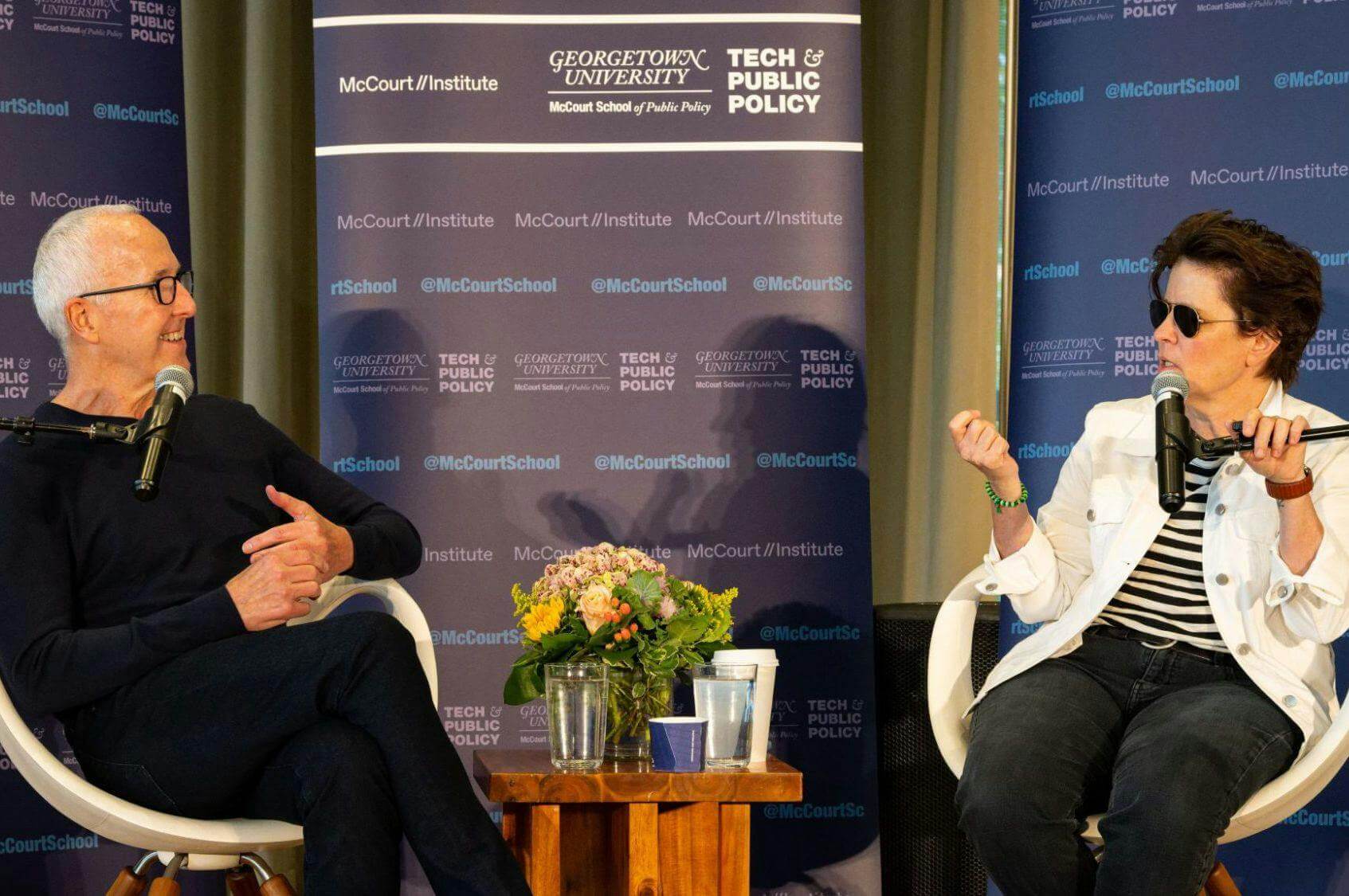Founder Frank McCourt joined renowned journalist Kara Swisher at Georgetown University on October 12, 2022 for a candid discussion about technology, democracy and ways to create a more equitable internet and healthier social media models.
Project Liberty founder Frank McCourt joined renowned journalist Kara Swisher at Georgetown University on October 12, 2022 for a candid discussion about technology, democracy and ways to create a more equitable internet and healthier social media models. The event, entitled Move Fast and Fix Things, brought together hundreds of students, policy leaders, academics, and journalists. McCourt and Swisher, who are both Georgetown alumni, shared their perspectives about the direct connection between our current tech architecture and the state of democracy, the harmful impacts of Silicon Valley’s dominant business models, and how we can harness the promise of a new wave of technology to fix social media and the damage it’s caused, shift the ownership and control of personal data from platforms to people, and ensure that innovation is guided by effective governance principles.
The two spoke about the need for action, with Swisher noting, “Our government has done nothing to protect the consumer…There is no national privacy bill. There is no anti-hacking bill. There is no algorithmic transparency bill.” To this point, McCourt highlighted the promise of the Decentralized Social Networking Protocol (DSNP), an open-source protocol released by Project Liberty last year that establishes a shared social graph independent of a specific app or centralized platform, as the technological foundation for this new ecosystem. “We’re taking advantage of decentralization to create an ecosystem where a thousand Davids can flourish and get rid of the Goliaths,” McCourt said. Project Liberty encourages “a very different way of thinking about technology” and advances innovation that, by its very design, would address many of the challenges legislative and regulatory proposals aims to solve.
McCourt and Swisher agreed that a future iteration of the internet infused with decentralized technology, often called “Web3,” has the potential either to drive significant improvements or accelerate negative impacts. “We’ve seen that democratic society is not compatible with autocratic technology,” McCourt stated. “If people get involved, we can chart a new course.” He then highlighted the work of the McCourt Institute, a key part of the non-profit Project Liberty initiative, which is engaging technologists, social scientists, and civil society leaders to develop much-needed digital governance frameworks. McCourt also shared his excitement about the growing number of students, at Georgetown University and other academic communities, who are directly engaging in Project Liberty’s work – and he encouraged the entire audience to help shape and advance this comprehensive, non-profit effort. “Project Liberty is not a tech project,” McCourt noted, “It’s a democracy project. And we need everyone involved.”
The event was jointly hosted by Project Liberty’s Institute (then known as the McCourt Institute) and McCourt School of Public Policy‘s Tech and Public Policy Program.
